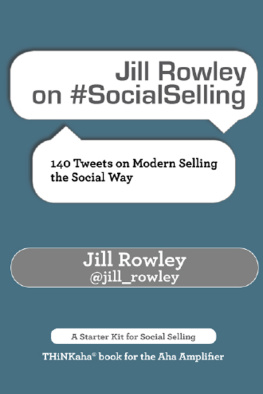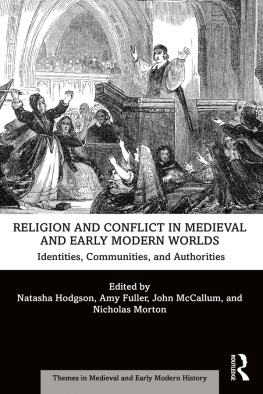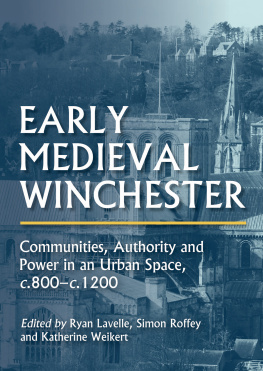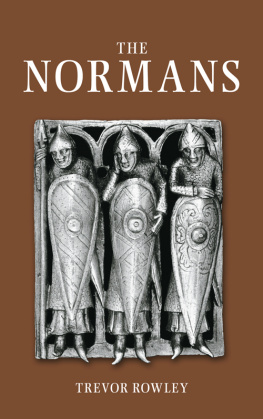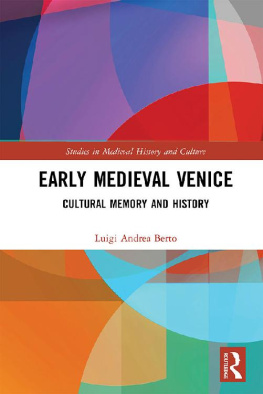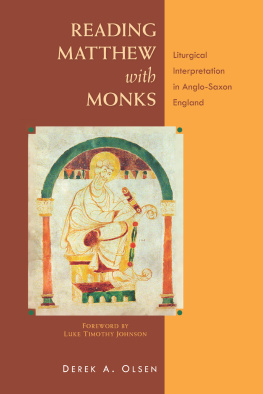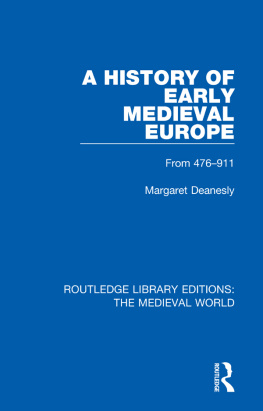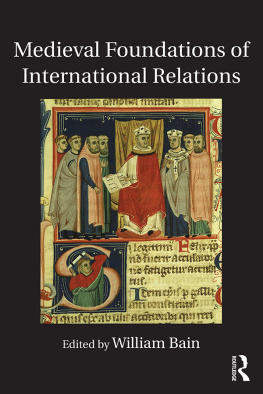
MIRACLES, POLITICAL AUTHORITY AND VIOLENCE IN MEDIEVAL AND EARLY MODERN HISTORY
This volume examines how historical beliefs about the supernatural were used to justify violence, secure political authority or extend toleration in both the medieval and early modern periods.
Contributors explore miracles, political authority and violence in Orthodoxy, Roman Catholicism, various Protestant groups, Judaism, Islam and the local religious beliefs of Pacific Islanders who interacted with Christians. The chapters are geographically expansive, with contributions ranging from confessional conflict in Poland-Lithuania to the conquest of Oceania. They examine various types of conflict such as confessional struggles, conversion attempts, assassination and war, as well as themes including diplomacy, miraculous iconography, toleration, theology and rhetoric. Together, the chapters explore the appropriation of accounts of miraculous violence that are recorded in sacred texts to reveal what partisans claimed God did in conflict and how they claimed to know. The volume investigates theories of justified warfare, changing beliefs about the supernatural with the advent of modernity and the perceived relationship between human and divine agency.
Miracles, Political Authority and Violence in Medieval and Early Modern History is of interest to scholars and students in several fields including religion and violence, political and military history, and theology and the reception of sacred texts in the medieval and early modern world.
Matthew Rowley is Honorary Visiting Fellow at the University of Leicester and a historian of early modern religion and violence. Trump and the Protestant Reaction to Make America Great Again (2021) examined how Americans interact with historical racism, sexism and exploitation. He is editing a two-volume Global Sourcebook in Protestant Political Thought, 15171914.
Natasha Hodgson is Director of the Centre for the Study of Religion and Conflict at Nottingham Trent University. She wrote Women, Crusading and the Holy Land (2017) and co-edited Crusading and Masculinities (2019). She is series editor for Themes in Medieval and Early Modern History and Advances in Crusader Studies and co-edits Nottingham Medieval Studies.
Themes in Medieval and Early Modern History
This is a brand new series which straddles both medieval and early modern worlds, encouraging readers to examine historical change over time as well as promoting understanding of the historical continuity between events in the past, and to challenge perceptions of periodisation. It aims to meet the demand for conceptual or thematic topics which cross a relatively wide chronological span (any period between c. 5001750), including a broad geographical scope.
Series Editor: Natasha Hodgson, Nottingham Trent University.
Available titles:
Cultures of Law in Urban Northern Europe
Scotland and its Neighbours c.1350c.1650
Edited by Jackson W. Armstrong and Edda Frankot
Religion and Conflict in Medieval and Early Modern Worlds
Identities, Communities and Authorities
Edited by Natasha Hodgson, Amy Fuller, John McCallum and Nicholas Morton
Britain and its Neighbours
Cultural Contacts and Exchanges in Medieval and Early Modern Europe
Edited by Dirk H. Steinforth and Charles C. Rozier
Miracles, Political Authority and Violence in Medieval and Early Modern History
Edited by Matthew Rowley and Natasha Hodgson
For more information about this series, please visit: www.routledge.com/Themes-in-Medieval-and-Early-Modern-History/book-series/TMEMH
First published 2022
by Routledge
2 Park Square, Milton Park, Abingdon, Oxon OX14 4RN
and by Routledge
605 Third Avenue, New York, NY 10158
Routledge is an imprint of the Taylor & Francis Group, an informa business
2022 selection and editorial matter, Matthew Rowley and Natasha Hodgson; individual chapters, the contributors
The right of Matthew Rowley and Natasha Hodgson to be identified as the authors of the editorial material, and of the authors for their individual chapters, has been asserted in accordance with sections 77 and 78 of the Copyright, Designs and Patents Act 1988.
All rights reserved. No part of this book may be reprinted or reproduced or utilised in any form or by any electronic, mechanical, or other means, now known or hereafter invented, including photocopying and recording, or in any information storage or retrieval system, without permission in writing from the publishers.
Trademark notice: Product or corporate names may be trademarks or registered trademarks, and are used only for identification and explanation without intent to infringe.
British Library Cataloguing-in-Publication Data
A catalogue record for this book is available from the British Library
Library of Congress Cataloging-in-Publication Data
Names: Rowley, Matthew, Dr., editor. | Hodgson, Natasha R., editor.
Title: Miracles, political authority, and violence in medieval and early
modern history / edited by Matthew Rowley and Natasha Hodgson.
Description: Abingdon, Oxon ; New York, NY : Routledge, 2021. |
Includes bibliographical references and index.
Identifiers: LCCN 2021024098
Subjects: LCSH: ViolenceReligious aspectsHistory. | Supernatural
History. | Religion and politics. | Religious toleranceHistory.
Classification: LCC BL65.V55 M57 2021 | DDC 261.709/02dc23
LC record available at https://lccn.loc.gov/2021024098
ISBN: 978-0-367-76726-6 (hbk)
ISBN: 978-0-367-76728-0 (pbk)
ISBN: 978-1-003-16829-4 (ebk)
DOI: 10.4324/9781003168294
Typeset in Bembo
by Apex CoVantage, LLC
CONTENTS
Matthew Rowley
1 Words that supply valour: God, warfare, and the rhetoric of persuasion in Carolingian history writing
Robert Evans
2 Bearded ghosts and holy visions: miracles, manliness and clerical authority on the First Crusade
Natasha Hodgson
3 Narrating new wonders: divine agency, crusade and Afonso I of Portugals 1147 conquest of Santarm
Beth C. Spacey
4 Miracles, divine agency, and Christian-Muslim diplomacy during the crusades
Scott Moynihan
5 Divining Gods favour and diverting his wrath: supernatural intervention in the Hussite Wars under Jan ika, 14191424
Andrew K. Deaton
6 The sword of God: tyrannicide as a providential and miraculous event from medieval debates to early modern religious conflicts
Julien Le Mauff
7 The place of miraculous images/icons in the confrontation between Christian confessions in the Polish-Lithuanian Commonwealth at the end of the sixteenth to seventeenth century
Volha Barysenka
8 Providence and conscience during the Cromwellian conquest of Scotland, 165053
Calum S. Wright
9 Universal martyrdom: resistance and religion in 1650s Ireland
Joan Redmond
10 Authority, toleration and miracles in the writings of Roger Williams, Thomas Hobbes and John Locke
Matthew Rowley
11 Our Almighty God is the over-ruling Generalissimo: teaching and experiencing Providence in the British Army, 16881714
Ping Liao
12 Immanent power and the conversion of kings



